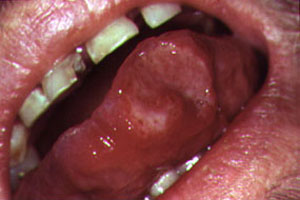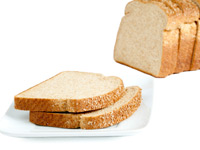People who take lysine daily seem to get fewer canker sores. This is interesting because typically lysine (also known as l-lysine) is recommended for cold sores vs canker sores and they are very different conditions.
First you need to know the difference between the two types of sores. Cold sores, which are highly contagious, are caused by the herpes virus, while canker sores are not contagious and they can have many causes. The causes range from vitamin deficiency, stress, genetics, food allergies, the SLS in toothpaste, physical trauma to the mouth, hormone fluctuations, a temporary weakening of the immune system such as when you get a cold or flu, and can also afflict those with seriously compromised immune systems.
Cold sores are clusters of blisters that appear on the outside of the lips and surrounding area, while canker sores, also called mouth ulcers or aphthous ulcers, are small, very painful ulcers appear on the inside of the mouth, namely the inner lips and cheeks, tongue, gums and soft palate. They usually start as a red spot with a white-ish rim, which soon becomes coated with a yellowish mix of bacteria, white blood cells and fluid (yuck). The pain and discomfort can be considerable, and they usually last from a week to two weeks, and in severe cases as long as six weeks.
Some people have tried everything, both over-the counter canker sore treatments and home remedies as well as prescription medicines and have not found relief. For some, supplementing with lysine seems to be the answer.
What Is Lysine
L-Lysine
is an essential amino acid, which means it is not produced in the body and you need to get it from your foods. It is found naturally in protein such as from red meat, fish and soy, legumes, dairy products like cheese, milk and eggs, and wheat germ. You can also buy it in supplement from health food stores and many drug stores and it is relatively inexpensive. Lysine is an essential building block for protein and for producing carnitine, which is used to convert fatty acids into energy. Lysine is also important for the formulation of collagen and helps in the absorption of calcium. It assists with tissue repair and the production of hormones, enzymes and antibodies.
It appears that a deficiency in lysine make be a trigger for mouth ulcers in some people. Sometimes vegans who don’t consume enough legumes and some athletes bay become deficient. Also, those who are taking the amino acid arginine for other conditions may need to supplement with lysine to maintain a balance between the two amino acids. High levels of arginine may lower your levels of lysine. Lysine is often used by cold sore suffers to prevent or reduce outbreaks and there are some scientific studies to back this up. They seek to increase the levels of lysine vs. arginine, which is used by viruses for growth and development.
While canker sores do not appear to be caused by a virus and are not related to cold sores (herpes virus), for some people supplementing appears to help reduce or prevent canker sore outbreaks. Anecdotally, people who have tried lysine say they get fewer canker sores and they are smaller and tend to heal quicker. No one knows exactly why lysine might help with canker sores, but some people have found that taking 1000 mg per day has helped.
Safety
According to the University of Maryland Medical Center, lysine is pretty safe, although in high doses it has been shown in some studies to sometimes cause diarrhea, gallstones and those with kidney or liver issues should be sure to consult their doctor before using. As with any supplement, if you are thinking about trying lysine to help prevent your canker sores, you should check with your doctor.


